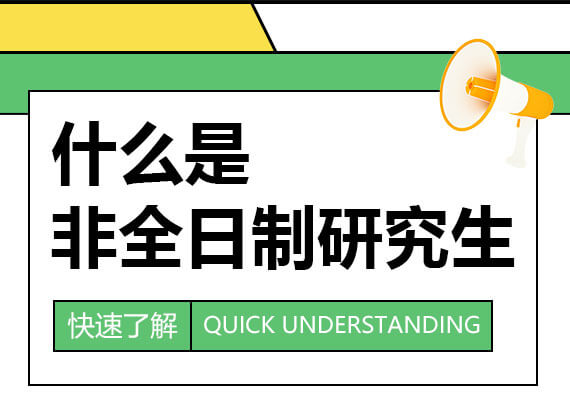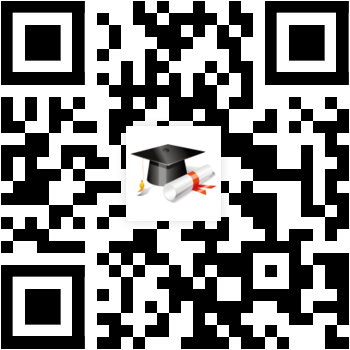2013在职联考模拟练习题及答案
来源:在职研究生招生信息网 发布时间:2013-08-20 10:21:46
Paper One
Part I Dialogue Communication (15 minutes, 15 points)
Section A Dialogue Completion
Directions: In this section, you will read 5 short incomplete dialogues between two speakers, each followed by four choices marked A, B, C, and
D. Choose the answer that best suits the situation to complete the dialogue. Mark your answer on the ANSWER SHEET with a single line through the center.
1. Speaker A: I would like to see Prof. Adams, please.
Speaker B: __________
A. Where are you from?
B. He is happy now, and he wants to see you.
C. Do you have an appointment with him?
D. No. He is free and he will be glad to see you.
2. Speaker A: I need a book, Critical Review on Nineteenth Century for History 312.
Speaker B: __________
A. History books can´t be taken out of the library.
B. History books are highly recommended here.
C. It is a reserved book, and you can read it here only.
D. It has been translated into English already.
3. Speaker A: Ground Hotel. May I help you?
Speaker B: __________
A. Sorry. I don´t think you are helpful.
B. Yes. We need three single rooms for this weekend.
C. Thank you. I´d like to make a long distance call to Shanghai.
D. All right. Here is your single room.
4. Speaker A: May I see your driver´s license, please?
Speaker B: Sorry. I didn´t see that sign. __________
A. All right. I haven´t done anything wrong.
B. Well. What´s the matter?
C. No. But I was driving at 65 miles per hour.
D. Here you are.
5. Speaker A: Excuse me. Could you show me the way to the nearest post office?
Speaker B: ________
A. OK. I´d like to go with you.
B. No problem. It´s my pleasure to direct you.
C. Sorry. I´m busy now. Go away.
D. Of course. Go down this street and turn left.
Section B Dialogue Comprehension
Directions: In this section, you will read 5 short conversations between a man and a woman. At the end of each conversation there is a question followed by four choices marked A, B, C, and
D. Choose the best answer to the question from the four choices give and mark your answer on the answer sheet with a single line through the center.
6. Man: I was always surprised to see Tom using that tape recorder you were going to throw away.
Woman: Yes, it´s very old. That he got it to work amazes me.
Question: What does the woman say about Tom?
A. He fixed the tape recorder.
B. Although old, he is still working.
C. His love for music surprised the two speakers.
D. He picked up the tape recorder from the garbage can.
7. Woman: I can´t wait to see the look on Mary´s face when she opens our gift.
Man: Neither can I.
Question: What does the man mean?
A. He can´t imagine what his friends got for him.
B. He always knows what Mary will say.
C. He is anxious to see Mary´s reaction to the gift.
D. He is too busy to wait.
8. Woman: If these prices get any higher, I´ll have to go on a diet.
Man: You should anyway.
Question: What does the woman tell us?
A. She will continue with her diet.
B. She might die any day.
C. She can´t afford expensive food.
D. She is overweight.
9. Man: Does everything look right to you? I want it to be perfect.
Woman: I think you´ve made a mistake. The napkins go on the left and the silverware on the right.
Question: What are they talking about?
A. Laying the table.
B. Polishing silver.
C. Sewing napkins.
D. Putting the food away.
10. Woman: Tom, I´m glad I ran into you. I´ve been trying to call you but you´re never home. Where have you been hiding lately?
Man: Actually I´ve been very busy recently. I´m getting ready to go to the States for Christmas, and I have a million things to do.
Question: Why couldn´t the woman get the man on the phone?
A. Because he has been hiding lately.
B. Because he has been busy preparing his trip.
C. Because he has been back home.
D. Because he has to work hard for traveling expense
Part II Vocabulary and Structure (20 minutes, 10 points)
Directions: There are 20 incomplete sentences in this section. For each sentence there are 4 choices marked A, B, C, and
D. Choose the one that best completes the sentence. Mark your answer on the answer sheet with a single line through the center.
11. The science of medicine, we owe a great deal, is perhaps the most important of all the sciences.
A. in which
B. to which
C. at which
D. for which
12. Students at colleges in large cities ran into debts because it was easier for them to find part-time jobs than those in rural areas.
A. few
B. fewer
C. little
D. less
13. The woman does not mind in the bedroom.
A. her husband´s smoking
B. her husband´s smoke
C. her husband to smoke D her husband to smoke
14. I realized that she was the woman the world event on yesterday´s TV program.
A. reported
B. having reporting
C. to report
D. reporting
15. Mary told me that you were going to make a long journey to Australia, ?
A. didn´t you
B. weren´t you
C. wouldn´t
D. hadn´t you
16. , we turn on the air-conditioner.
A. It is a hot day
B. Being a hot day
C. It is being a hot day
D. The day being hot
17. No sooner had we reached the railway station it started to rain.
A. when
B. while
C. then
D. than
18. Accustomed to climbing trees, .
A. I had no difficulty reaching the top
B. reaching the top was not hard to me
C. the top was not difficult for me to reach
D. to reach the top was not a problem for me
19. Peter likes watching TV to the cinema.
A. more than to go
B. more than going
C. than going
D. rather than to go 21.
20. It was the training that he had as a young man made him such a good engineer.
A. has
B. later
C. which
D. that
21. To my great surprise the food was still on the table, .
A. untouching
B. no touch
C. untouched
D. not to be touched
22. The power was _________ by him, and many innocent people were punished.
A. behaved
B. abused
C. betrayed
D. bargained
23. They have agreed that they will ________ in the policy and will not change it.
A. commit
B. persist
C. combine
D. collapse
24. The police have the _______ proof of his guilt in murdering the woman.
A. brutal
B. blank
C. beneficial
D. absolute
25. Both sides have agreed that any ________action must be turned into peace.
A. accidental
B. aggressive
C. abstract
D. adequate
26. The country which was hit by earthquake ________ to the United Nations for aid.
A. accelerate
B. cherish
C. appeal
D. characterize
27. The company has to _________ the benefits against the costs in the last three months.
A. boast
B. blame
C. block
D. balance
28. Many people there try to __________ that shop because of its unreasonable prices.
A. stay away from
B. brand
C. keep in contact with
D. bury
29. It took the old lady almost three months to her illness.
A. get over
B. go over
C. get through
D. go through
30. It´s beyond any doubt that human beings cannot a nuclear war.
A. endure
B. maintain
C. survive
D. sustain
Part III Reading Comprehension (40 minutes, 40 points)
Directions: There are 4 passages in this part. Each of the passages is followed by 5 questions or unfinished statements. For each of them there are 4 choices marked A, B, C, and
D. Choose the best one and mark your answer on the ANSWER SHEET with a single line through the center.
Passage One
When Columbus reached the New World, corn was the most widely grown plant in the Americas. This plant´s range extended from what is now southern Canada to lower South America. At that time some tribes cultivated it at sea level, others at elevation of more than 11,000 feet.
“Columbus had no way of knowing that corn was far more valuable than the spices (香料) and gold he had hoped to find.” said Frances
B. King, a professor at a university of Pittsburgh. Through human intervention, this plant has developed into several hundred races, or varieties. Their heights vary from 2 to 12 feet, and their maturity ranges from little more than 2 months to almost a year. Their ears vary not only in color, but also in size.
Unlike other cereals (谷类), corn bears little resemblance to its wild ancestors. In fact, it differs from the appearance of its immediate ancestors more than any other cultivated plant known. From humble origins as a lowland grass, corn developed into the western world´s important grain. As its high yields allowed communities to grow far beyond what early agriculture could feed, most scientists viewed corn as having largely fueled pre-Columbian growth and civilization.
Now, new findings are greatly altering researchers´ notions about the time when corn revolution occurred. New dates for its emergence from Mesoamenrica do not support the widely held view. The evidence now suggests that the signs of corn in Americas can date back 5,500 years at least.
31. The first paragraph states that corn _____.
A. was mainly grown at sea level
B. was not grown below the elevation of 11,000 feet
C. was widely grown in Canada only
D. spread throughout Americas
32. The second paragraph implies that _____.
A. the purpose of Columbus´ exploration was to discover corn
B. corn was one of Columbus´ discoveries, but more precious than anything else
C. Columbus knew corn so well that he brought back to Europe at once
D. corn was the only Columbus´ discovery that was remembered
33. According to the passage, some varieties of corn can _____.
A. ripen little more than 2 months
B. last little more than 2 months
C. stay fresh for almost a year
D. stay alive from 2 months to almost a year
34. Corn helped the early communities to grow because _____.
A. it was easy to digest
B. it had a lot of varieties
C. it could produce high yields
D. it could last long
35. The widely held view was challenged by _____.
A. a new revolution
B. new findings about corn
C. the signs of corn 5,500 years ago
D. new dates for communities´ emergence
Passage Two
Women on a touring holiday of Britain were injured by an explosion in their motor van in the center of Norwich yesterday.
Shoppers, traders and businessmen in Red Lion Street were shocked by a loud bang, and seconds later the two men jumped over from the vehicle. Several people rushed to give assistance and helped to put out the fire inside the vehicle.
“I heard this explosion. It was pretty loud. I thought it could have been a bomb.” Said Mr. Leslie Webster, manager of the market, who was working in his office in Red Lion Street. “I looked out of the window and saw this lad leap from the van and roll on the ground. Then another lad came out of the van. He seemed to be in a worse state --- parts of his trousers were hanging below his knee.”
“I came downstairs to get a fire extinguisher(灭火器), but by the time I got outside someone from the bank was in the van with an extinguisher.”
Mr. Webster, who lives at 71, Trinity Street, Norwich, said both victims were shocked. One was taken into the market´s office to await an ambulance. “The second man insisted on going back into the van to see if everything was all right, and five minutes later he came out with a drawer that was blazing.” He added.
The explosion was also heard inside the bank. Staff provided a fire extinguisher and telephoned for an ambulance.
Although a plastic window was blown out, damage inside the vehicle was mainly superficial.
The two men have spent the last six months touring the Continent and has traveled to Norwich from Snetterton. At the time of the incident their wives were shopping in the city.
36. The two men in the van ______.
A. were unhurt
B. were slightly hurt
C. were shocked and badly hurt
D. needed a long-time treatment
37. The word “leap” most probably means ______.
A. jump over
B. step up
C. fall down
D. get out
38. In Mr. Webster´s opinion, the explosion ______.
A. was almost a bomb
B. wasn´t a bomb
C. was like a bomb
D. was a bomb
39. In the accident ______.
A. the windows of the bank were blown out
B. the contents of the van were damaged
C. everything in the van was all right
D. the van was burned
40. Which of the following is NOT true according to the passage?
A. Mr. Webster saw what had happened.
B. Mr. Webster helped to put out the fire.
C. Mr. Webster didn´t take a fire extinguisher to the van.
D. Mr. Webster wanted to help in the accident but he didn´t have a chance
Passage Three
Everyone experiences fear during major crisis—such as fires, automobile accidents, etc. Some people even feel very nervous when they fly in airplanes. No matter how hard they try, they cannot lower their anxiety. Some people try to hide their nervousness: they try to disguise their anxiety by telling jokes. Others become loud and aggressive, attacking people by making them the butt of cruel jokes. Sometimes making someone else the target of jokes is an attempt to control one´s own fears—to master anxiety.
A number of factors can be mentioned as important in explaining why some people have a fear of flying: early childhood experiences, general sense of security, fear of heights, trust in others, percentage of alcohol in blood, etc. The memory of a bad experience can sometimes trigger the same fear caused by that experience. Thus, a child might be frightened by the sight of a dog even though he is safe, merely because he once had a bad experience with a dog. A bad experience can be the cue that triggers our fears. But the crucial factor seems to be a feeling of no control.
Usually we are able to suppress our feelings so that they do not affect our behavior. But sometimes the tension produced by our fears is so great that we cannot suppress it. At such time we need to discharge the tension by laughing or crying. By smiling foolishly and talking loudly, we are able to repress the rising feeling of fear so that it does not affect the way we behave.
Because it is necessary to recognize a problem before it can be solved, admitting that we are afraid is an integral part of the process of mastering our fears.
36. To make someone the butt of jokes means ______.
A. to make someone become the object of jokes
B. to force someone to enjoy jokes
C. to entitle someone to tell jokes
D. to offend someone by jokes
37. What is the positive purpose of people´s telling jokes?
A. To show one´s sense of humor.
B. To control one´s own fears.
C. To disguise their anxiety.
D. To attack others.
38. To master anxiety means ______.
A. to be familiar with tension
B. to hold back the feeling of uneasiness
C. to conquer the feeling of nervousness
D. to be good at the subject of anxiety
39. According to the author, which of the following is the most important factor triggering the feeling of fear?
A. The fear of heights.
B. Early childhood experience.
C. The general sense of security.
D. A feeling of no control.
40. According to the concluding paragraph, what is essential to go through the process of mastering one´s fears?
A. To be conscious of the way of mastering fears.
B. To repress the rising feeling of fear.
C. To admit the feeling of fears.
D. To control one´s feelings.
Passage Four
Any country has good reason to want its citizens to be as healthy as possible, since one of its greatest resources is an active population. No country wants its people to suffer unnecessarily from ill health.
This was the kind of thinking which led to the introduction of a health service in many countries. In Britain this has developed into a “Welfare State” in which all citizens, rich and poor alike, can get most health treatment free. The money for this is partially raised by contributions from employers and employees.
As three decades have shown, such automatic arrangements are not always ideal and there are arguments for and against the Health Service. The number of patients treated every year and the cost of treatment are much greater than was estimated. This means that the people who work for the Health Service—doctors, nurses and other hospital staff—have much more routine work to do and as a result they have little time for preventive medicine. The Health Service does need more staff—a need that can only be met if more money is made available to it.
However, a powerful argument for the Health Service is that many people are able to receive expensive treatment which they could never afford themselves. Sometimes this free treatment is abused and people visit their doctors when they don´t really need to. Because they have so many patients, doctors cannot spend as long with each one as they would like, and some people prefer to pay for private treatment so that their doctors can give them more time. In fact, some wealthy people feel that they should pay, and so free more money for treatment to others.
46. In the author´s view, Britain is a Welfare State in that ______.
A. all citizens are entitled to a free medical treatment in some sense
B. poor, unlike the rich, could enjoy free medical treatment
C. health service is highly developed in Britain
D. Britain doesn´t allow its people to suffer unnecessarily from ill health
47. We can infer from the passage that ______.
A. the Health Service is introduced to many other countries by Britain
B. the Health Service has been introduced and developed for 30 years in Britain
C. an active population is the greatest resource in Britain
D. all citizens in Britain have a good opinion of the Health Service
48. The best title for the passage would be ______.
A. A Welfare State
B. Importance of the Health Service
C. Disadvantages of the Health Service
D. The Health Service
49. The author mentions that some wealthy people prefer to pay for private treatment because ______.
A. their doctors can give them more time leave from work
B. those doctors have better medical instruments
C. they might save some money for the poor
D. their doctors have a stronger sense of responsibility for the patients
50. The word “abused” (Par. 4) means ______.
A. destroyed
B. used in wrong way
C. ignored
D. wasted
Part IV Cloze Test (15 minutes, 10 points)
Directions: There are 10 blanks in the following passage. For each numbered blank, there are 4 choices marked A, B, C and
D. Choose the best one and mark your answer on the answer sheet with a single line through the center.
The development of e-commerce may well bring the world into a brand new era of “electronic currency”。 At the moment, 51 areas in Europe, the United States and Asia have already started studying the possibility of an electronic currency. Electronic currency is not only about currency. It 52 to an entire finance system on the Net. It includes a virtual numeric currency, an electronic system of withdrawals, transfers and loans, and 53 cards of all shapes and sizes. The 54 of an electronic currency system implies the emergence of “virtual banks” and “virtual enterprises”。 Actually, the first virtual bank appeared in the US in 1995. 55 it is a small and insignificant bank, it represents the trend of the future. In time to come, we may even have to 56 the familiar paper currency.
As the Net pushes the economy 57 rapidly, the economy is also bringing the Net market forward, resulting in the Internet itself becoming the world´s largest emerging market. Of course, this is just the beginning. Although there are many companies which made huge profits 58 in the Internet market, they tend to be small companies. To date, most companies are making losses. The competition in the knowledge-based economy will also be more 59 . This will definitely promote 60 and more efficient cooperation.
51.
A. developing
B. building
C. built
D. developed
52.
A. bridges
B. camps
C. refers
D. casts
53.
A. phone
B. credit
C. personal
D. borrowing
54.
A. appearance
B. disappearance
C. campaign
D. ceremony
55.
A. If
B. After
C. Until
D. Although
56.
A. promote
B. abandon
C. encourage
D. celebrate
57.
A. ahead
B. backward
C. front
D. behind
58.
A. invested
B. comparing
C. investing
D. compared
59.
A. competent
B. intense
C. comparative
D. interior
60.
A. rougher
B. mere
C. serious
D. greater
Paper Two
Part V Translation (30 minutes, 10 points)
Directions: Translate the following passage into Chinese and put your translation on the ANSWER SHEET.
The great advantage of the railroad has always been its superior carrying capacity. It can carry massive and heavy loads at relatively high speeds for long distances; one engine can pull a load of several hundred tons. Coal and grain are typical commodities for which rail transportation is employed over long distances, when water transportation is not available.
But rail transportation suffers from one serious disadvantage, it is inflexible; it is confined to rails, and obviously there cannot be as close a network of rails as of roads. Road transportation goes from door to door. The lower cost pre mile of rail transportation is more than balanced by the greater cost of loading and unloading at the beginning and end of many journeys. Therefore, road transportation system has developed much faster than the rail system over the past twenty years.
Part VI writing (30 minutes, 15 points)
Directions: You are to write in no less than 120 words about the title “Sports”。 You should base your composition on the outline give in Chinese below:
1. 体育运动很重要,几乎每个人都喜欢体育运动;
2. 不同的人喜爱不同的体育运动。
3. 我喜爱的体育运动是___________________。
参考答案
Part I Dialogue Communication (15 minutes, 15 points)
Section A Dialogue Completion
1----5 C C B D D
Section B Dialogue Comprehension
6----10 A C C A B
Part II Vocabulary and Structure (20 minutes, 10 points)
11---20 B B A D B D D A B D
21---30 C B B D B C D A A C
Part III Reading Comprehension (40 minutes, 40 points)
31---40 D B A C B B AC D B
41---50 A B C D C A B D C B
Part IV Cloze Test (15 minutes, 10 points)
51---60 D C B A D B A C B D
Part V Translation (30 minutes, 10 points)
铁路运输的最大优点是它的巨大载货能力。它能够长距离,快速的运送大量沉重的货物。一台火车头能够拉动几百吨的重物。当水路运输无法进行时,煤炭和粮食是长距离铁路运输的典型货物。
但是铁路运输有它的严重的缺陷。即,收到铁轨的限制,它不够灵活。它不能像公路网那样的密集。公路运输能够直接将货物送的门口。铁路运输每英里的底成本被运输过程中的装和卸的高成本所抵消。因此,在过去的20年间,公路运输要比铁路运输发展得快得多。
下一篇: 2013年GCT考试数学考前模拟试题





















